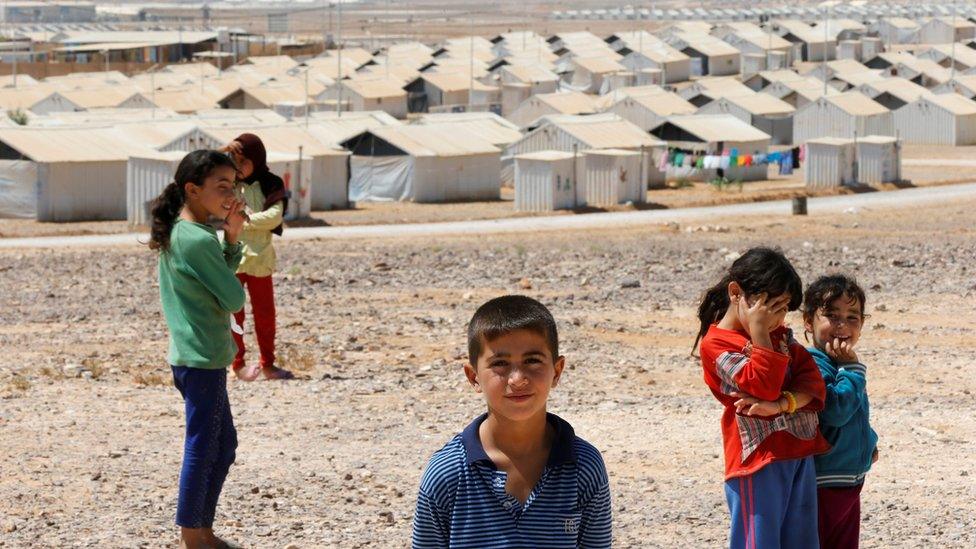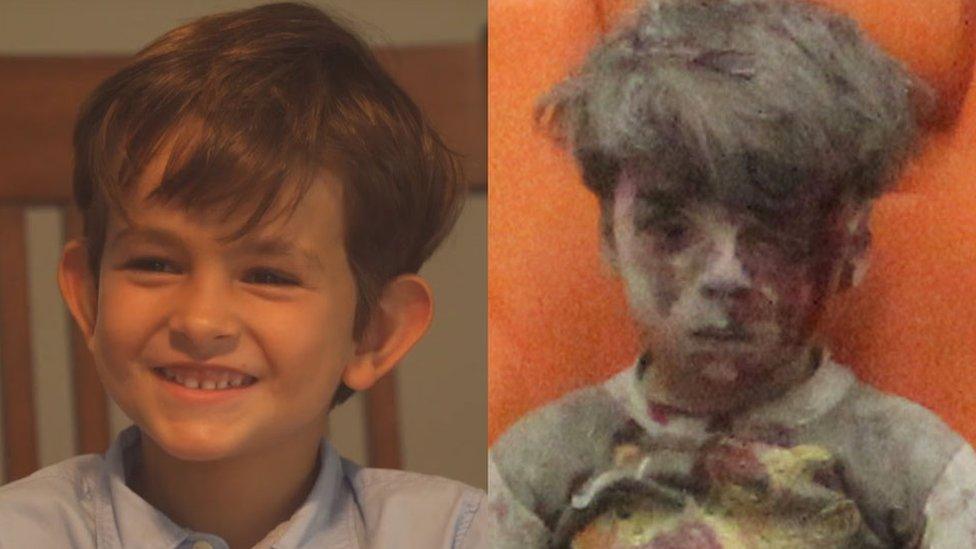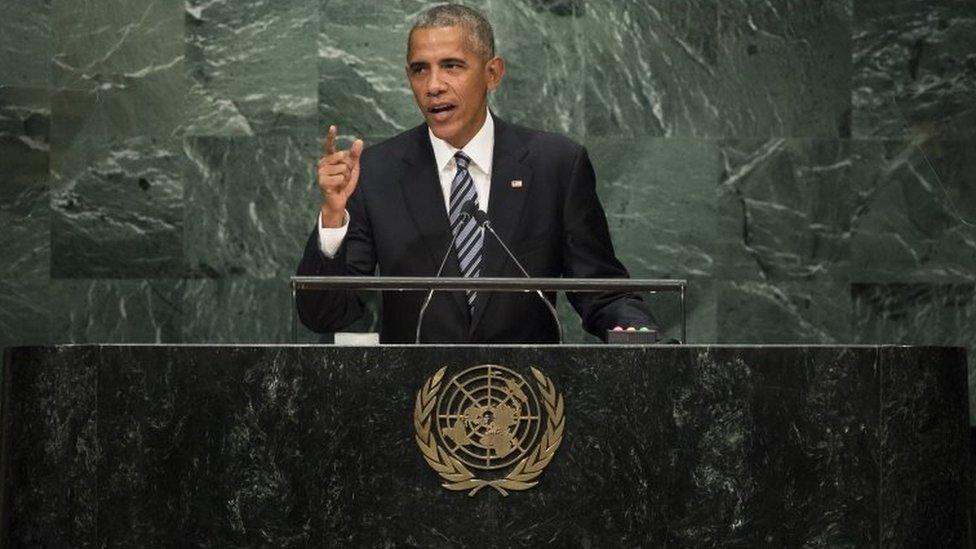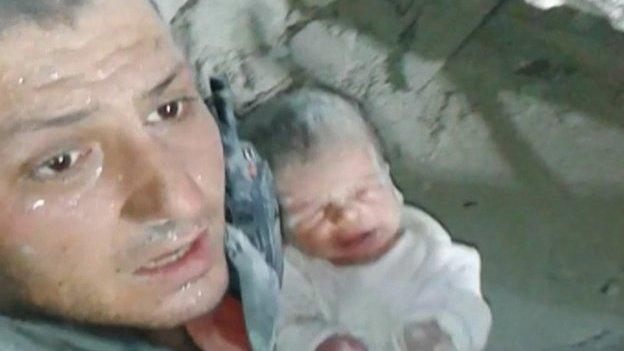Rich nations 'shirking' responsibility to refugees - Amnesty
- Published

Jordan hosts more refugees than any other country in the world
Amnesty International has accused the world's wealthiest nations of shirking responsibility towards refugees, saying they host the fewest and do the least.
Ten countries which account for just 2.5% of the global GDP are sheltering more than half the world's 21 million refugees, says a report by the charity., external
Salil Shetty, Amnesty's secretary general, called for wealthier nations to take in many more people.
Mr Shetty called the UK a "sad example" of the failure to take responsibility.
The UK has accepted about 8,000 Syrian refugees since 2011, according to the UN. The US has taken just 12,000.
And according to recent UN refugee agency data, no Syrian refugees have been resettled by China, Russia or any Gulf states.
By comparison, Jordan, which has a GDP just 1.2% the size of the UK's, hosts nearly 655,000 Syrian refugees.
With more than 2.7 million refugees in total, Jordan is sheltering more than any other nation. Turkey has taken in more than 2.5 million people; Pakistan 1.6 million; Lebanon more than 1.5 million.
In 2015, Germany took in 890,000 people seeking asylum who had not been designated as refugees.
"A small number of countries have been left to do far too much just because they are neighbours to a crisis," said Mr Shetty.
He added: "If we just share this out, say 60 to 90 countries share the responsibility, we could be in a very different situation. It's a big problem but it's a very solvable problem."
The other nations with the largest refugee populations are:
Iran (979,400)
Ethiopia (736,100)
Kenya (553,900)
Uganda (477,200)
Democratic Republic of Congo (383,100)
Chad (369,500)
The UK has said its policy is to provide aid money to neighbouring countries so that they can support refugees closer to home. But Amnesty criticised the approach in its report, saying rich countries should not "pay to keep people 'over there'".
Refugees and migrants continue to risk their lives attempting to reach Europe. On Monday Italy co-ordinated the rescue of 2,600 people off the coast of Libya.
- Published22 September 2016

- Published20 September 2016

- Published26 August 2016
